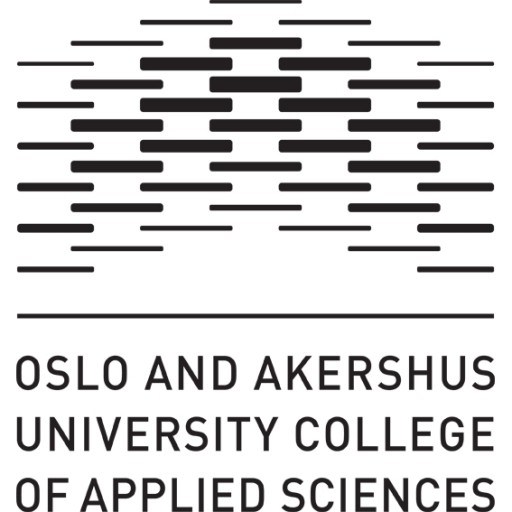Photos of university / #unioslo
Special and Inclusive Education at the University of Oslo is a comprehensive master's degree program designed to prepare students for advanced roles in the field of inclusive education, special needs education, and social inclusion. This program offers an in-depth exploration of educational strategies, policies, and practices aimed at creating equitable learning environments for all students, regardless of their backgrounds or abilities. Throughout the program, students will engage with current research, learn about inclusive pedagogical methods, and develop practical skills necessary to support diverse learners in educational settings. The curriculum emphasizes interdisciplinary approaches, combining insights from psychology, sociology, pedagogy, and disability studies to enhance understanding and intervention strategies for students with special educational needs. Students will have opportunities for collaborative projects, internships, and research activities, enabling them to apply theoretical knowledge in real-world contexts. The program is suitable for aspiring educators, researchers, policymakers, and professionals working in special education, inclusive schooling, and related fields. Graduates will be equipped to influence educational practices, advocate for inclusive policies, and contribute to societal development by promoting equal opportunities for all learners. The university’s state-of-the-art facilities, experienced faculty, and strong international network provide an enriching academic environment. Upon completion, graduates will be well-prepared to work in schools, educational administrations, non-profit organizations, or pursue doctoral studies. The program also emphasizes the importance of cultural competence and ethical considerations in special and inclusive education, ensuring graduates are capable of operating effectively in diverse and dynamic settings. The University of Oslo is committed to fostering an inclusive academic community, and this program reflects that commitment by equipping students with the knowledge and skills needed to make a meaningful difference in the lives of individuals with special educational needs.
The Master's program in Special and Inclusive Education at the University of Oslo is designed to provide students with an in-depth understanding of diverse educational needs and the strategies to create inclusive learning environments. The program combines theoretical knowledge with practical approaches, aiming to equip future educators, researchers, and policy makers with the tools necessary to support learners with disabilities, learning difficulties, and other special educational needs. Throughout the programme, students explore a wide range of topics including frameworks for inclusion, educational psychology, assistive technology, and legal and ethical considerations in special education. Emphasizing both individual and systemic perspectives, the program encourages critical thinking about how educational institutions can adapt to serve all students effectively, regardless of their abilities or backgrounds. The curriculum includes coursework, seminars, and research projects, offering a balanced mix of theoretical insights and practical application. Students will have opportunities to engage with current challenges in special education and develop innovative solutions tailored to diverse contexts. The program also highlights the importance of collaboration among educators, families, and communities in achieving inclusive education. Graduates will be prepared to work in various settings, such as schools, special educational needs services, and research institutions, where they can implement inclusive practices and policies. The program emphasizes evidence-based approaches and promotes lifelong learning to ensure students are well-equipped to contribute to positive changes in educational systems worldwide. With a strong focus on empirical research, the program prepares students to critically evaluate educational interventions and advocate for equitable access to quality education for all learners.
The Master’s programme in Special and Inclusive Education at the University of Oslo offers a comprehensive educational experience supported by various funding options. Tuition fees for international students may apply, but students are encouraged to explore scholarship opportunities provided by the university, government grants, and external funding sources. The University of Oslo, in collaboration with Norwegian government programs, offers a limited number of scholarships aimed at reducing financial barriers for international students pursuing master's studies. These scholarships may cover tuition fees partially or fully, depending on the applicant's merit and financial need.
Norwegian students and students from the European Union/European Economic Area (EU/EEA) benefit from the Norwegian Student Support Scheme (Lånekassen), which provides financial aid including loans and grants for education in Norway. This support covers living expenses, travel, and study-related costs, and is awarded based on eligibility criteria set by Lånekassen. Non-EU/EEA students are generally not eligible for Lånekassen funding; however, they are encouraged to seek external scholarships, grants from their home countries, and funding through international organizations, foundations, or governmental agencies.
Financial planning for the program should also consider living expenses in Oslo, which include accommodation, food, transportation, and study materials. The university's website offers detailed information about estimated costs, as well as resources for financial planning and scholarships. Students can also explore part-time work opportunities permitted under visa regulations to support their studies financially. The university provides guidance on employment options and legal requirements for international students seeking part-time employment during their studies.
In summary, financing studies in the Special and Inclusive Education program involves a combination of scholarships, student loans, personal savings, and part-time employment. It is advisable for prospective students to review all available options early and apply for scholarships and financial aid well in advance of the start of their studies. The university’s dedicated financial aid office provides assistance and guidance throughout the application process, helping students to secure the necessary funding to successfully complete their education.
The Master's programme in Special and Inclusive Education at the University of Oslo is designed to provide students with comprehensive knowledge and advanced skills necessary to support and develop inclusive educational environments for diverse learners. The programme explores a broad range of topics, including theories of learning and development, inclusive pedagogy, special educational needs, and strategies for adapting teaching practices to meet individual student requirements. It emphasizes evidence-based approaches and encourages critical reflection on current practices and policies in special and inclusive education. Students engage in both theoretical coursework and practical assignments, enabling them to apply their learning directly in various educational settings. The programme benefits from the university's strong research environment and collaborative projects, providing students with opportunities to participate in ongoing studies and develop innovative solutions for inclusion challenges. Graduates of this programme are prepared for roles in schools, educational authorities, research institutions, and non-governmental organizations, where they can contribute to making education more accessible and equitable. The curriculum typically includes modules on assessment and intervention, inclusive leadership, diverse educational needs, and collaboration with families and communities. The programme also emphasizes ethical considerations, cultural competence, and lifelong learning. Admission requires relevant academic background, often a bachelor's degree in education or related fields, along with relevant work experience is an advantage. The programme is conducted in English, attracting students from various countries, and often includes international perspectives on inclusive education practices. Overall, this master's programme aims to develop professionals capable of leading positive change in the field of inclusive education, fostering environments where every learner's rights, needs, and potential are recognized and supported.






